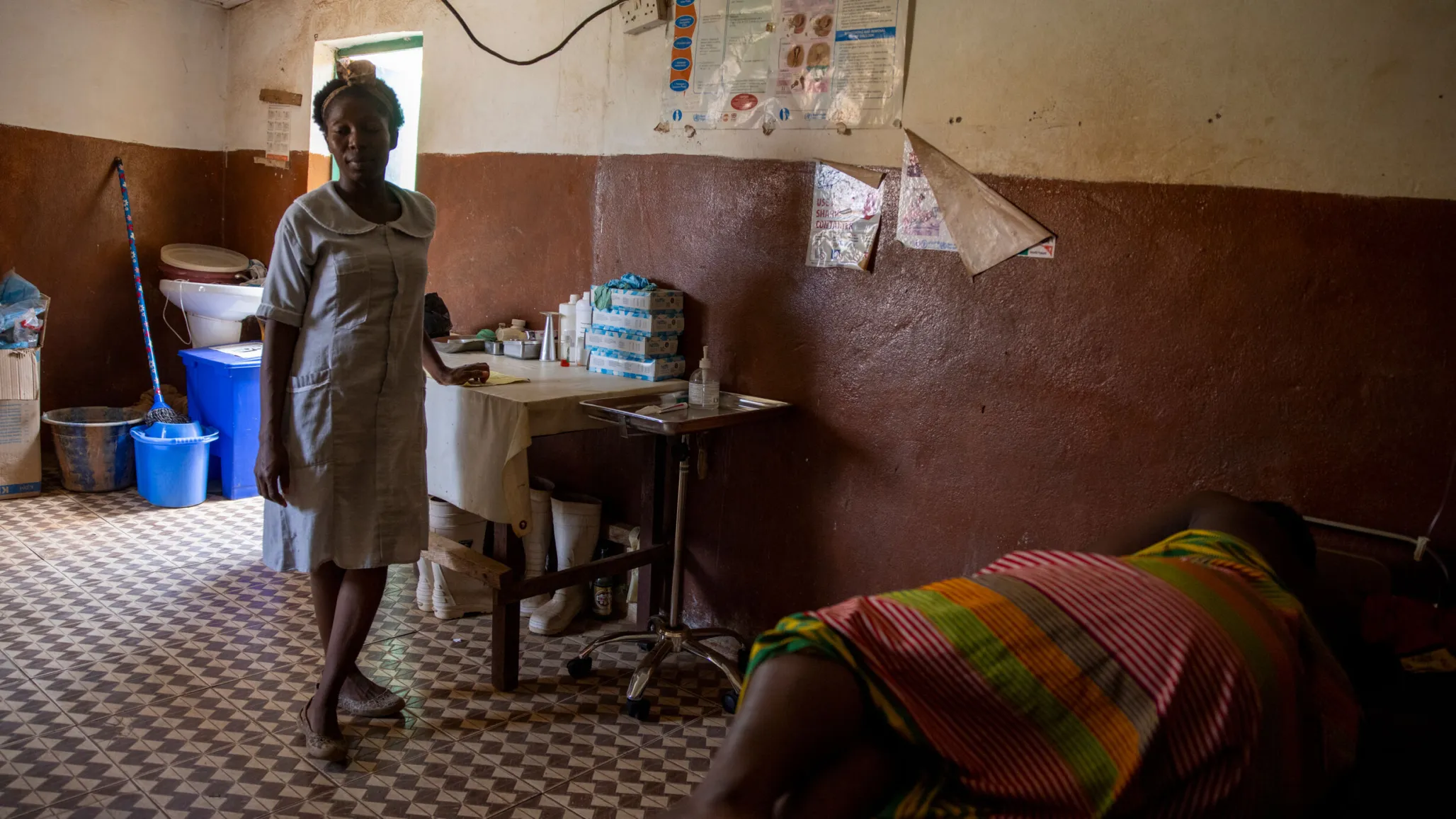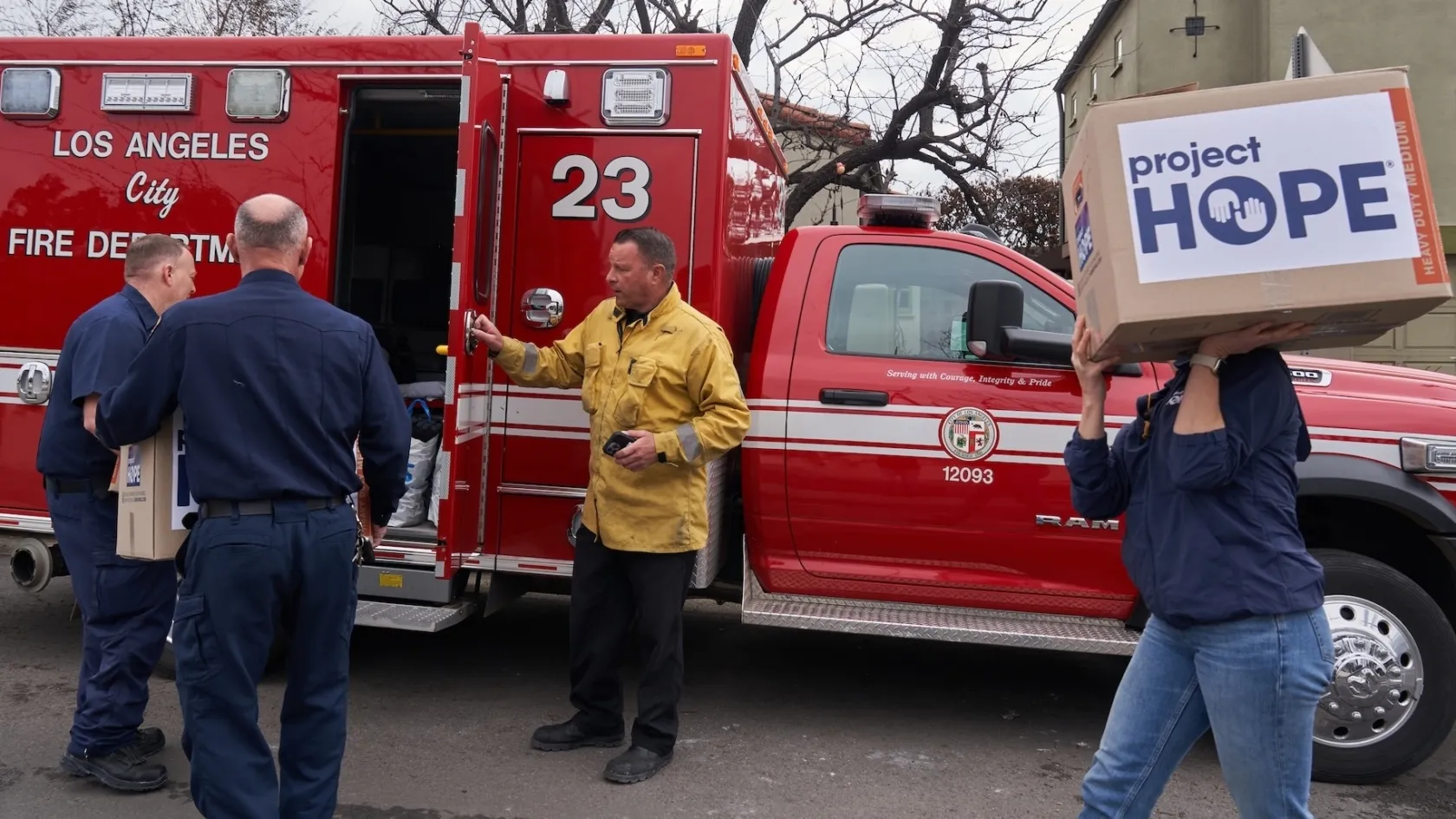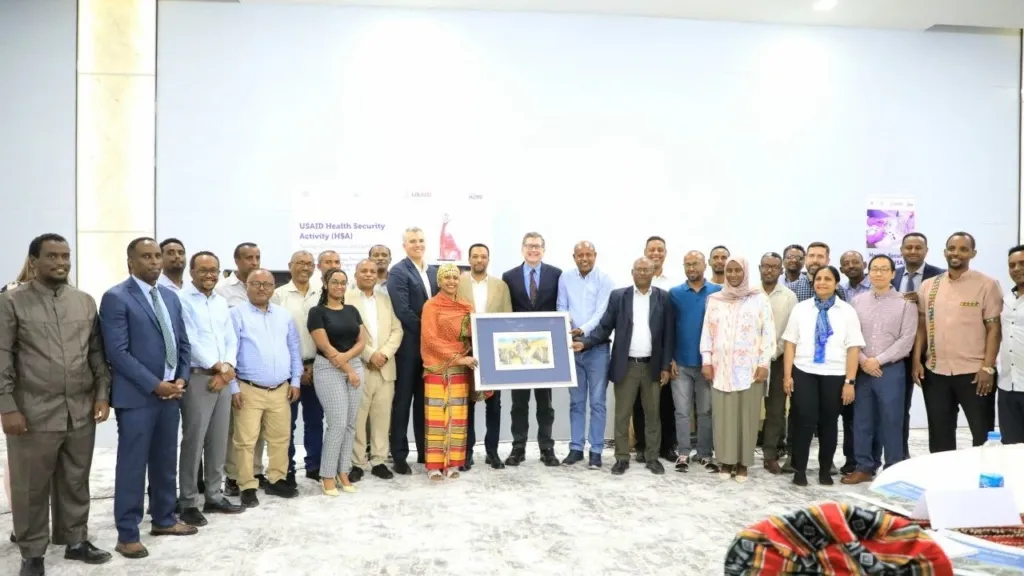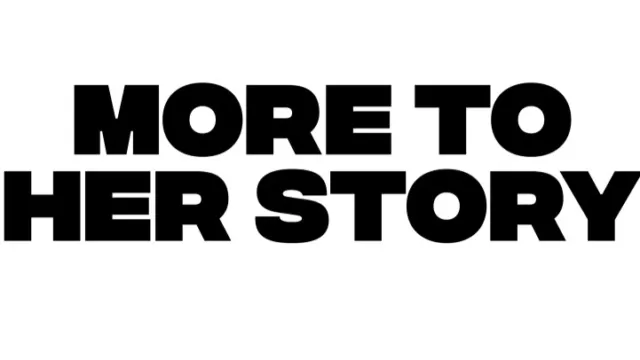Sierra Leone: Birth is Life-Threatening for Women and Newborns

In Sierra Leone, the challenges surrounding childbirth pose life-threatening risks for women and newborns. The country currently ranks fifth in the world for infant mortality rates, with 34 deaths per 1,000 births. Additionally, Sierra Leone is confronted with high maternal mortality rates, with 443 mothers dying per 100,000 births due to complications related to pregnancy or childbirth. There has been an improvement in maternal mortality rates over the last two years, and the goal is to reduce this number to below 300 by 2025.
Last month, as part of Project HOPE’s work with The Church of Jesus Christ of Latter-day Saints, a group of four U.S. volunteers traveled to the Western Area Rural district of Sierra Leone to train a group of 30 midwives on recognition and treatment of post-partum hemorrhage, neonatal resuscitation, and essential newborn care. These midwives will then train other health care workers in the thirty-two facilities supported by this program. Year round, Project HOPE is actively supporting health workers and health care facilities across the country to improve maternal and infant health outcomes including helping create, implement, and fund Sierra Leone’s first bachelor and master’s program in neonatal nursing through the College of Medicine and Allied Health Sciences at the University of Sierra Leone.
Annette Ofodum, Project HOPE’s Country Representative for Sierra Leone, said:
“The reality for pregnant women in rural areas of Sierra Leone is grim. The overall health system is poorly funded and women in rural communities frequently give birth in clinics without electricity, running water, and basic amenities. These clinics often lack essential medicines such as oxytocin to prevent postpartum hemorrhage or vitamin K which is universally administered to newborns at birth. Should complications arise, these clinics do not have supplemental oxygen, resuscitation equipment, or a way to transport critically ill patients. The health workers that staff such clinics have limited training opportunities to acquire the knowledge and skills necessary to provide high-quality care. Because of medicine and supply shortages, health workers sometimes purchase critically needed items themselves at local pharmacies. Hospitals in major cities like Freetown are hours away, usually requiring motorcycles to drive on rough roads due to a poorly functioning emergency response system. If women give birth at night, pharmacies are closed and there are no ambulances available. Preventable deaths of women and newborns occur every day.
Birth should never be a death sentence for women or newborns. The maternal and newborn death crisis in Sierra Leone is solvable, beginning with the education of the next generation of health workers and ensuring clinics are equipped with the essential medicines and supplies required for life-saving care.
Throughout my work, one truth is evident – knowledge is power. By educating midwives on essential maternal and newborn care they can disseminate this information to other health providers that attend births in their communities, initiating a cascade effect that benefits our entire country. Progress and Project HOPE’s work would not be possible without generous and on-going support from the Ministry of Health, Health Minister Dr. Austin Demby, and The Church of Jesus Christ of Latter-day Saints.”
Yenoh, a midwife in Jui, Sierra Leone, said:
“You feel guilt within yourself because of the death of the baby. What have I done? What am I to do?
We refer patients to the hospital. Some of them don’t want to go. They want to deliver here [at the local clinic]. But if they can’t deliver here, they know it’s because of complications. In terms of transportation, during the day you see vehicles, but late at night you don’t. If you want to refer patients, there is no vehicle. If we call an ambulance, they will tell us they do not have an ambulance. If we have two patients here and want to refer them, we go to the community to find people who have vehicles who can transport them. Some drugs are not available. During the day we can go to the pharmacy, but at night we can’t do it.”
Project HOPE’s work in Sierra Leone began in 2015 in response to the government’s call for assistance to help contain the Ebola outbreak. Project HOPE provided over $16 million worth of medicine and medical supplies to help treat and contain the outbreak. Over the last eight years, Project HOPE has worked closely with Sierra Leone’s Ministry of Health to support local and national maternal and newborn health initiatives. In the future, Project HOPE aims to assist the Ministry of Health in enhancing comprehensive services for HIV, tuberculosis, and malaria, strengthening health systems, and integrating mental health services across various health program areas.
Notes to the Editor:
- View new photos from Sierra Leone here. Please credit “James Buck for Project HOPE” for all photos.
For Media Inquiries: media@projecthope.org



